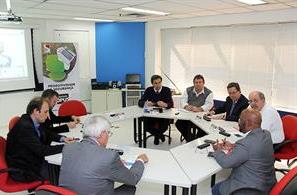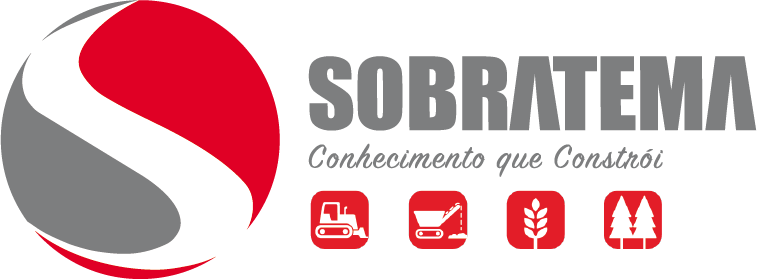Publicado em 12 de maio de 2014
Experts discuss solutions for the challenge of labor in the construction industry
Contractors, rental companies, associations and teaching institutions propose to establish a platform of good practices for professionals’ qualifying

The event was coordinated and organized by the Grandes Construções magazine together with the Instituto Opus. Discussions were carried out by Alisson Daniel, director of Escad Rental, Antônio Luís Aulicino, Institutional Relations Manager of Abendi – Brazilian Association of Non-destructive Tests, Dionísio Parisi, Manager of Strategic Alliances of the SENAI Paraná, Elson Rangel, leader of Human Resources and Organization (P&O) and Engineering of Construtora Norberto Odebrecht, Hugo Marques Rosa, president of Método Engenharia, Laertes Vieira, manager of the Sesi/Senai of Rio Branco do Sul and Wilson de Mello Jr., director of the Instituto Opus of Sobratema – Brazilian Association of Technology for Construction and Mining. These professionals discussed the main causes of the lack of skilled labor for construction works and equipment operation.
One of the most important suggestions that came out of this first round table was the creation of a platform with good practices for training and qualifying construction labor. “Training is fundamental to increase productivity, safety and quality in our worksites. For this reason, to develop this platform we have to give courses that fit our reality and are appropriate to the demands of Brazilian construction”, explains Wilson de Mello Jr., from the Instituto Opus. He also emphasizes that the courses must have a comprehensive technical content a comprehensive technical content and theoretical and practical approach given by highly skilled instructors.
In addition, Alisson Daniel, from Escad, considers that the platform may also contribute to highlight the importance of professional training, independently of the existing metrics that confirm the benefits of training for corporations. “It is a way to stimulate and sensitize businessmen about the relevance that qualification may bring to their activities, including higher profitability and competitiveness”, evaluates him. “The quantity of works increased during the last years, generating more demand of equipment operators. The availability of qualified labor, however, did not follow this increasing necessity”, remembers him.
Challenges
For Hugo Marques Rosa, from Método Engenharia, it is necessary to bring industrialization to the construction works. “One of our main problems is engineering. We have to remove from the field the processes and systems that may be developed in a plant, in a factory”, says him. “In addition, we should create working conditions that allow Brazilian civil construction to dispute this labor with other markets”, complements him.
Elson Rangel, from Odebrecht, says that there is also difficult to create conditions to attract young people to the profession of machine operator or maintenance technician. “One of the challenges in the construction business is to enhance technical careers”, points out the executive, who also said that—depending on the area that the operator will work—his salary may be higher than that of an engineer.
Alisson Daniel, from Escad, agrees with Rangel’s point of view about the possibility of establishing well-succeeded technical careers in the construction business. “We have to remember that a work will not be built and finished only with engineers and administration. Technical crews are fundamental”, emphasizes him.
For Antônio Luís Aulicino, from Abendi, the solution of labor problem is critical for Brazilian construction and for the country itself. “We came to a point that the important is to get a professional, even not being the more skilled one. On the other hand, we need productivity. In this sense, I believe that planning is fundamental not only to improve education but also to ensure appropriate professional training and qualification”.
In this context, SENAI is planning to install the Rede Nacional da Construção Pesada (National Network of Heavy Construction) to graduate equipment operators and specialized labor for this industry. “We are carrying out meetings with our entire network and with entities and institutions to make feasible this project. Our goal is to have a training campus in Paraná”, end Dionisio Parise, from SENAI and Laertes Vieira, from Sesi/SENAI.

Av. Francisco Matarazzo, 404 Cj. 701/703 Água Branca - CEP 05001-000 São Paulo/SP
Telefone (11) 3662-4159
© Sobratema. A reprodução do conteúdo total ou parcial é autorizada, desde que citada a fonte. Política de privacidade


